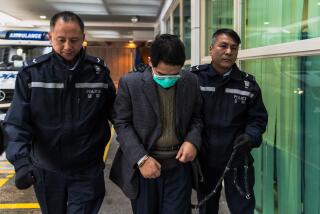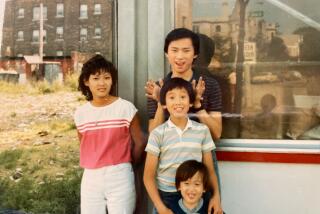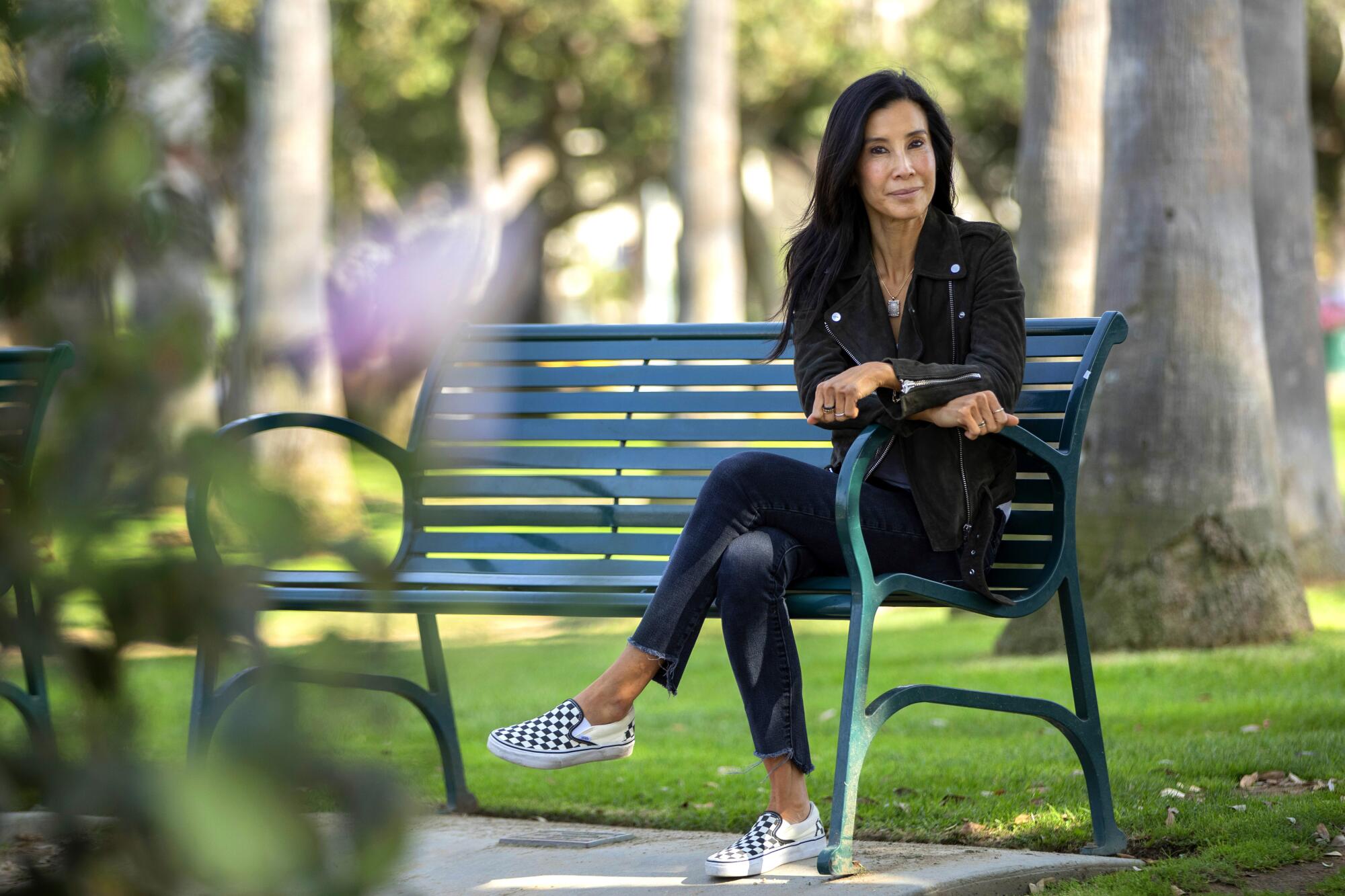
- Share via
As a TV journalist in the public eye for more than 20 years, Lisa Ling knows that criticism and angry comments from the public come with the territory. But she was taken aback by the viciousness of the remarks she saw last year when the country was shut down by the COVID-19 pandemic.
“The day after Donald Trump called COVID the ‘China virus,’ I got two messages on social media that told me my people were responsible for it,” Ling, 48, says in a recent Zoom call from her home in Santa Monica. “I saved the tweet: ‘I hope you and your kids die from the Wuhan virus.’”
The words hurt Ling, who is Chinese American and grew up in Carmichael, a suburb of Sacramento. When she saw how similar rhetoric led to a staggering surge in the number of attacks on Asian Americans in cities across the country, she was galvanized to act.
In the eighth-season premiere episode of Ling’s CNN documentary series “This Is Life,” which debuts Sunday, she takes an intensely personal look at how prejudice against her community has a long and torturous history in the U.S.
“The Legacy of Vincent Chin” is the first of eight installments that examine how today’s divisive and often intractable issues involving race, gender and equality are rooted in troubling events from the nation’s past.
The retrospective approach is partly due to health protocols that kept Ling from producing the immersive, long-form storytelling “This Is Life” delivered over its first seven seasons (now available for streaming on HBO Max).
“Our shows are very experiential, and we had to pivot because we couldn’t do that,” Ling says. “I had this idea of being able to rely a little bit more on archival footage and not feeling like we had to be as close physically and intimately. We tried to pick events in history where you can draw a definitive line to where we are today.”
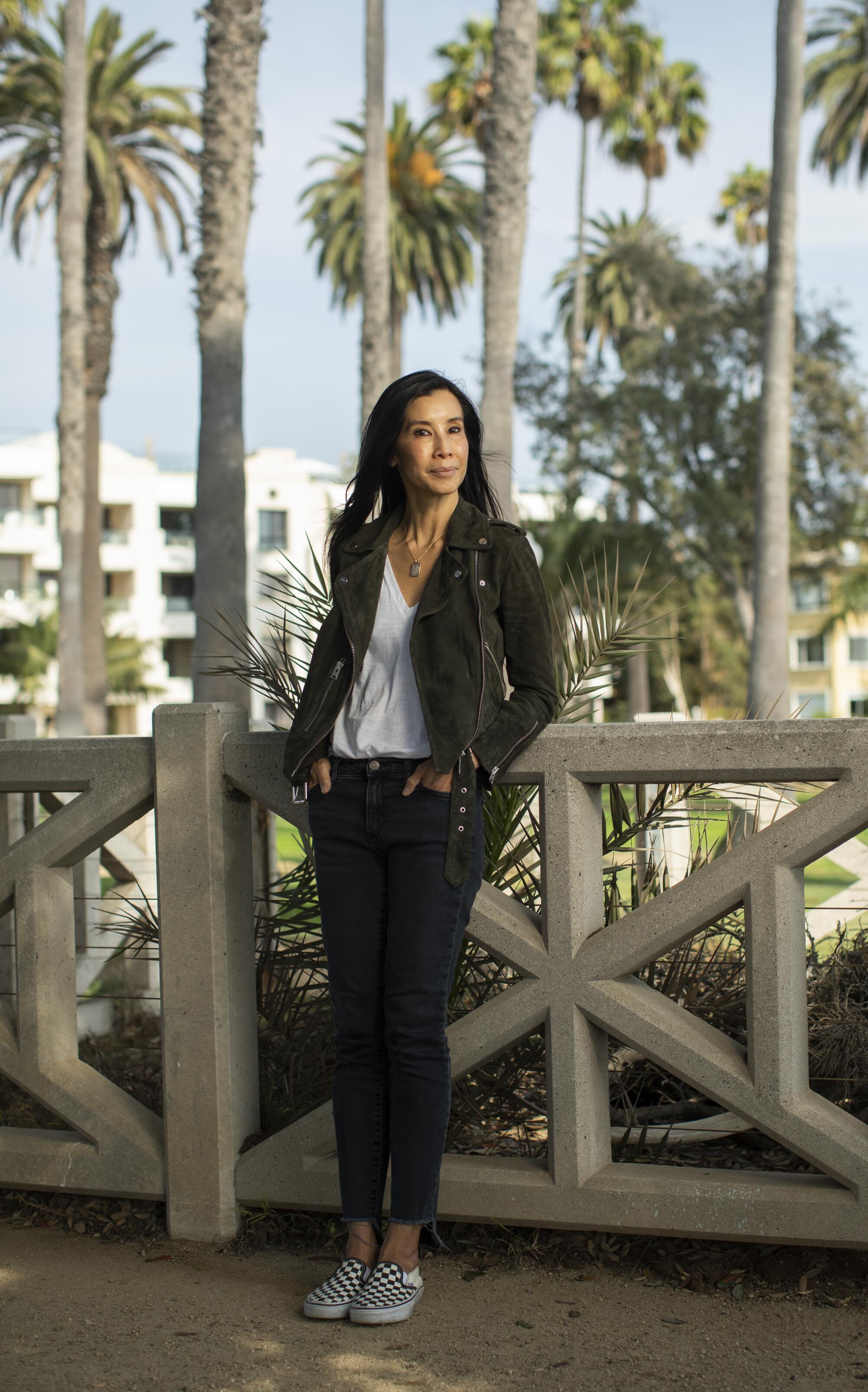
He waited for my mom and my daughter outside and yelled to them, “Go back to China.” ... My daughter was just so confused. She’s like, “Go back to China? Am I from China?”
— Lisa Ling
Ling’s first trip back in time takes viewers to 1982, when the country’s long-prosperous auto industry was disrupted by an influx of fuel-efficient imports from Japan. The despair over unemployment turned into hate and violence in Detroit, where Ronald Ebens, a Chrysler foreman, and his stepson Michael Nitz, a laid-off auto worker, hunted down 27-year-old Vincent Chin and bludgeoned him to death with a baseball bat.
The attack followed a scuffle that occurred in a nightclub where Chin was having his bachelor party. Ebens was heard using slurs and blaming Chin, a Chinese American draftsman who had nothing to do with the economic crisis.
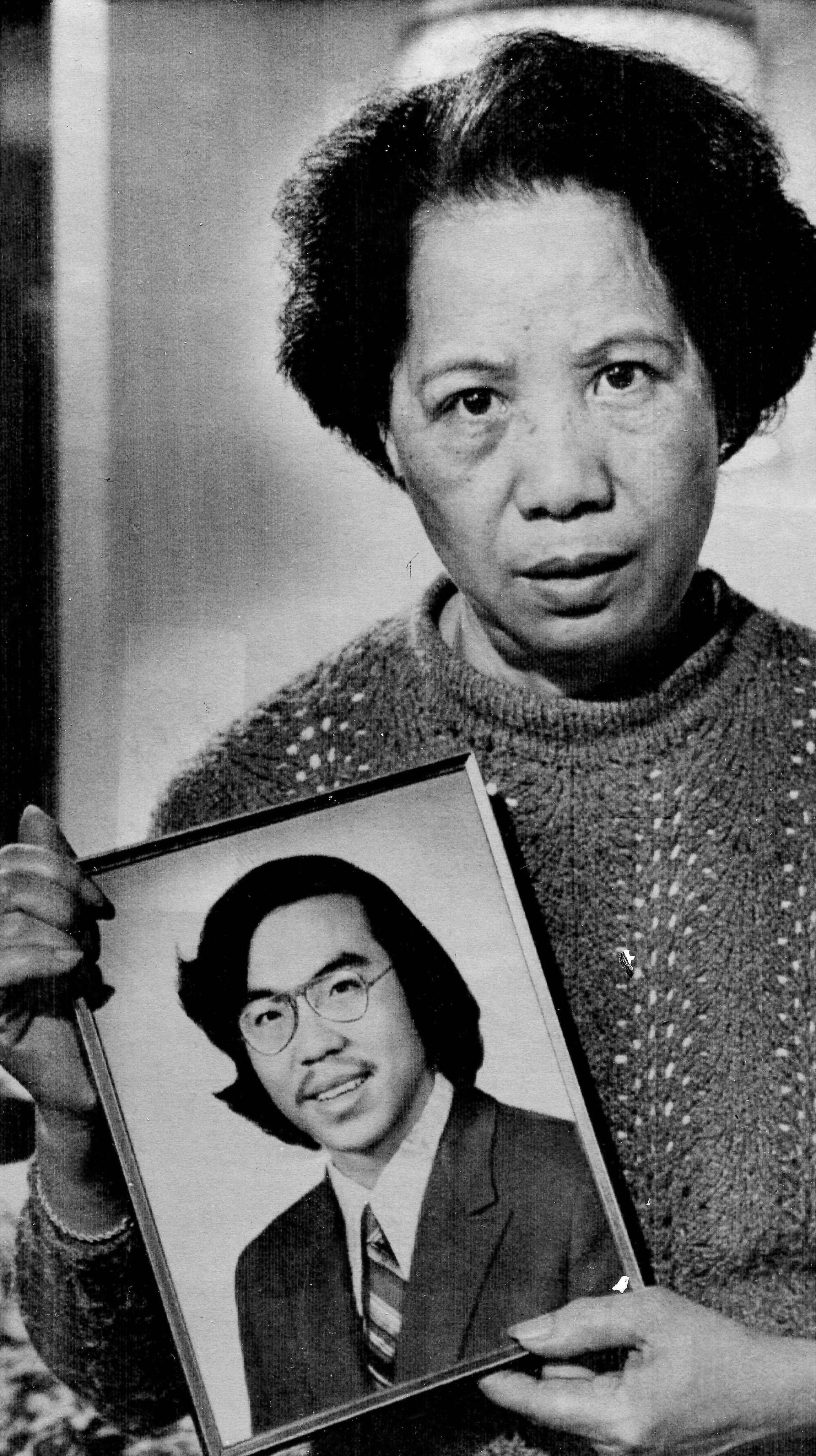
Chin died because of how he looked. His final words were, “It’s not fair.” The 400 family members and friends who came to Detroit for his wedding instead attended his funeral.
Ebens and Nitz pleaded guilty to manslaughter but received no jail time. Activists got the federal court to indict the men for violating Chin’s civil rights — the first such case involving an Asian American. But after a conviction, the verdict was overturned on appeal.
Ling remembers being 10 years old when her father read about the incident in the newspaper. “It just exacerbated that feeling of un-belonging for me,” she tells viewers.
Even as a popular kid growing up, Ling was teased over her ethnicity. Some classmates called her “Risa Ring.” It made her hate being Chinese American. She never complained, repressing her feelings of shame and self-loathing.
The admissions are striking, as regular “This Is Life” viewers have watched Ling glide through dangerous situations and unfamiliar worlds with confidence and a touch of bravado as she tells her stories.
Ling reconstructs the Chin case with archival news footage and an extensive interview with Helen Zia, the journalist and activist who helped raise awareness of the case at the time. Ling connects the activism Chin’s death sparked to the current movement combating violence toward Asian Americans.
Lily Chin, whose grief and outrage over the 1982 killing of her son helped galvanize Asian Americans to fight for civil rights, died of cancer Sunday at a hospital in Farmington Hills, Mich.
“What is happening now is Asian Americans are actually communing and talking to each other about it and realizing that we’re not alone in this,” Ling says. “And that’s been, for me, a really powerful silver lining in all of this.”
Ling includes CNN clips of herself appearing at a Stop Asian Hate rally in Los Angeles. While she is not a CNN employee — her program is supplied to the network by production company Part2 Pictures — journalists appearing at social protests have been a point of contention in some newsrooms. But Ling felt compelled to take an activist role.
“If I don’t use my platform to try and protect people, and to remind people of the fact that we are Americans and we belong here, then what good is it to have a platform?” Ling says. “I have not enjoyed doing this. When I’ve appeared on other shows talking about this, I’m literally shaking under the table. It has consumed so much of my head space and my heart space when I see these brazen attacks of our elderly that are going viral, because that could be my grandfather or my own father.”
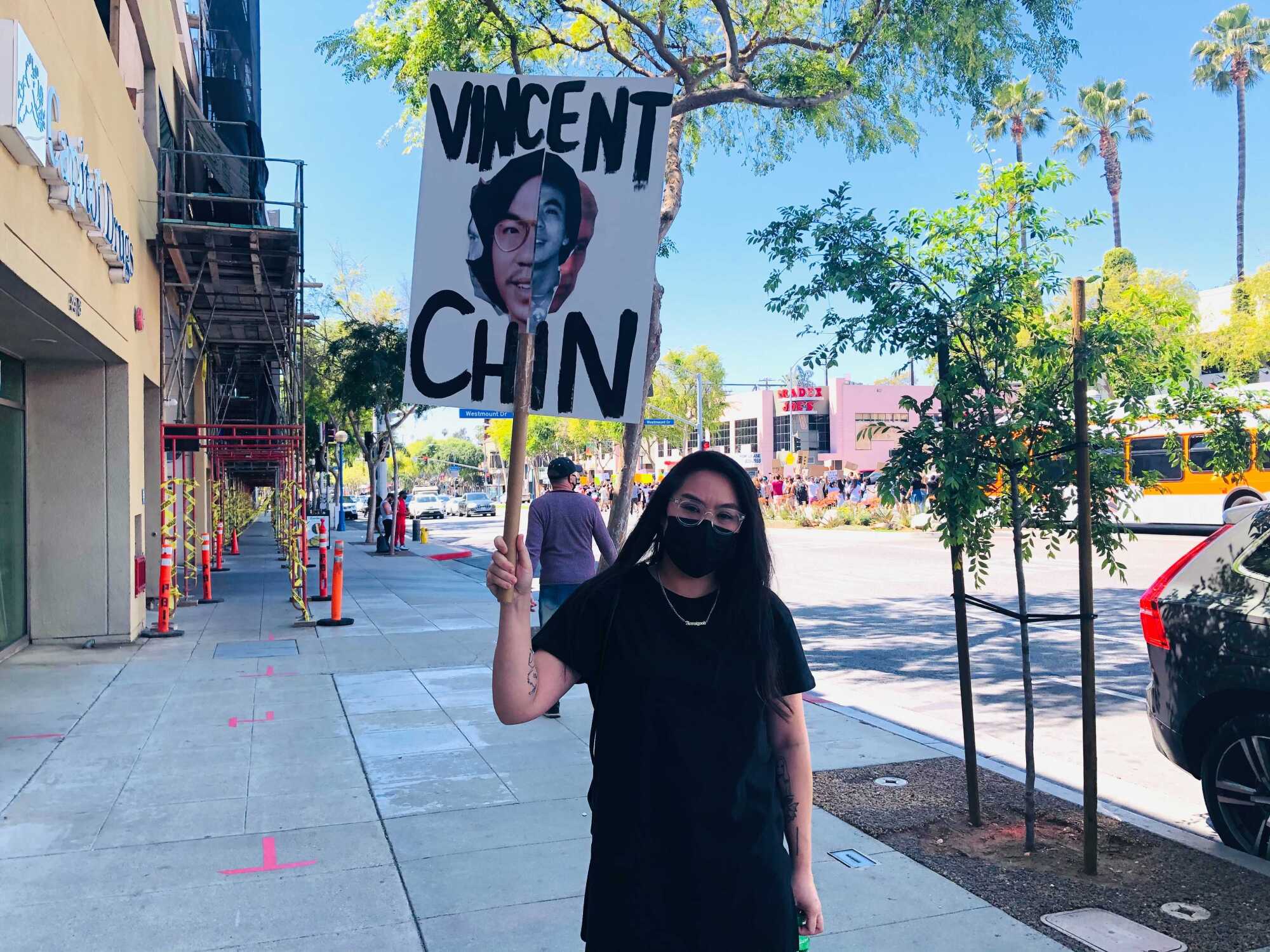
Amy Entelis, executive vice president for talent and content development at CNN, fully supports Ling’s first-person approach to the story.
“Lisa, like all of us, was very much affected by events of the last 18 months,” Entelis says. “Sadly, there has been such a rise in anti-Asian American hate crimes. An episode from Lisa on this topic added unique depth and empathy.”
Ling has two young daughters with husband Paul Song, an oncologist. She tries to educate her daughters on discrimination, reading them books and recounting stories about the World War II internment of Japanese Americans, the civil rights movement and slavery. But she cannot always protect them in the outside world, even at a grocery store in nearby Brentwood.
“When my 8-year-old was 6, she was at a Whole Foods with my mother and inadvertently spilled a little water on a man’s shoe. And he became apoplectic and caused a scene,” Ling recalls. “It was so traumatizing for her that a manager had to tell him to leave. He waited for my mom and my daughter outside and yelled to them, ‘Go back to China,’ as soon as they emerged. And my daughter was just so confused. She’s like, ‘Go back to China? Am I from China?’”
Later in the season, Ling gets a first-hand look at gang violence in Chicago, where she met her husband and once made her home. With shootings in the city up 10% over 2020, her entry point is a 1919 incident when a Black teenager was murdered after his raft drifted into an area of a Lake Michigan beach restricted to white people.
The boy’s death led to deadly riots in Chicago and set in motion the cycle of racist economic and housing policies that led to the gang violence that still plagues the city today.
“Having spent a lot of time in Chicago, it breaks my heart to read every week about all the killings there,” says Ling. “It’s so easy to discount it as gang-on-gang, Black-on-Black crime. But when you really dissect all of the dynamics that had been in play in the city over the last 100 years, it’s plain to see that those invisible lines — the construction and then the demolition of housing projects, and then just planting people in communities where they know no one, that already have existing issues, there’s no wonder it has erupted in this kind of violence.”
How Joe Lauro of Historic Films uncovered the trove of 1969 Harlem Cultural Festival footage for the Sundance Festival winner.
Ling also will explore the 1950s Cold War-era campaign to purge gay people from the U.S. government, known as “the Lavender Scare.” She travels to Oklahoma to examine the “Reign of Terror” killings of Osage tribe members who flourished in the 1920s during the nation’s oil boom.
As the military’s handling of sexual harassment cases is being reexamined after the 2020 murder of Army soldier Vanessa Guillén, Ling revisits the Tailhook Scandal of 1991, when a convention of aviators ended with at least 83 individuals assaulted in one weekend.
I attended the Tailhook Assn. convention last weekend wondering how an organization whose name has become synonymous with “sex scandal”--the way Watergate and Iran-Contra have become code for “sleazy cover-up”--would rehabilitate its image.
Ling’s stories come at a time when school boards across the country are attempting to restrict teachings on the darker chapters of the country’s past, such as slavery and segregation. They are a reminder that social progress can be fragile, something that Ling has been forced to contemplate herself after the last 18 months.
“In this century, there have been moments where I’ve thought that Asians were really starting to gain traction,” Ling says. “In the last couple of years some incredible blockbuster movies came out featuring Asian casts. And then COVID struck and it forced so many of us to really reckon with this country’s history and our sense of belonging here. A lot has changed, but in some ways this idea that Asian people have continued to be looked at as foreigners in our own home has not changed at all.”
‘This Is Life With Lisa Ling’
Where: CNN
When: 7 p.m. Sunday
Rating: TV-PG (may be unsuitable for young children)
More to Read
The complete guide to home viewing
Get Screen Gab for everything about the TV shows and streaming movies everyone’s talking about.
You may occasionally receive promotional content from the Los Angeles Times.
